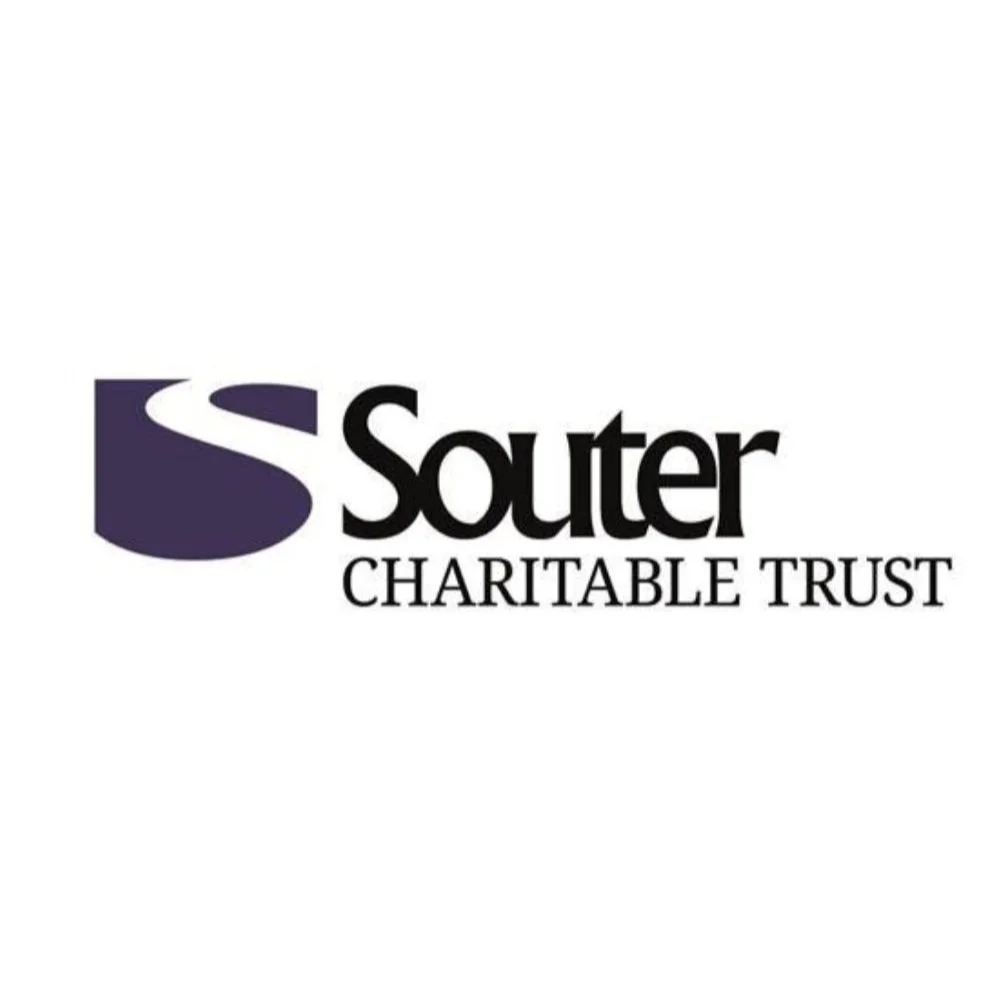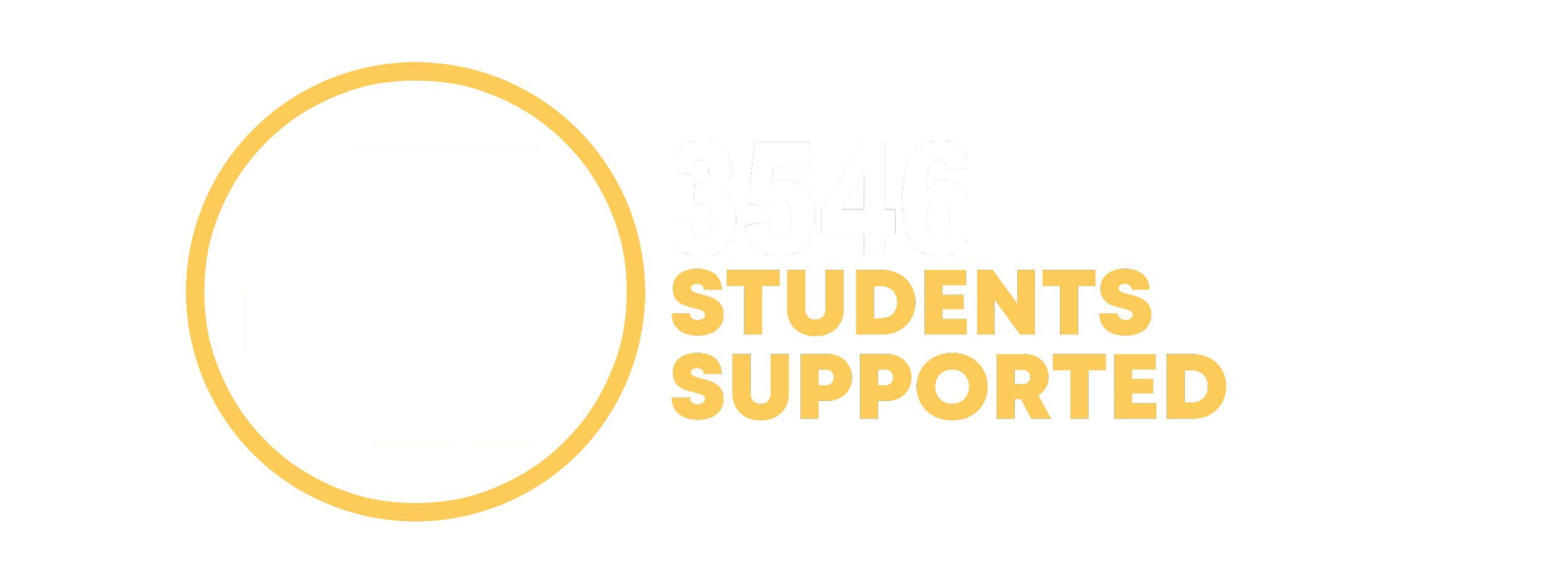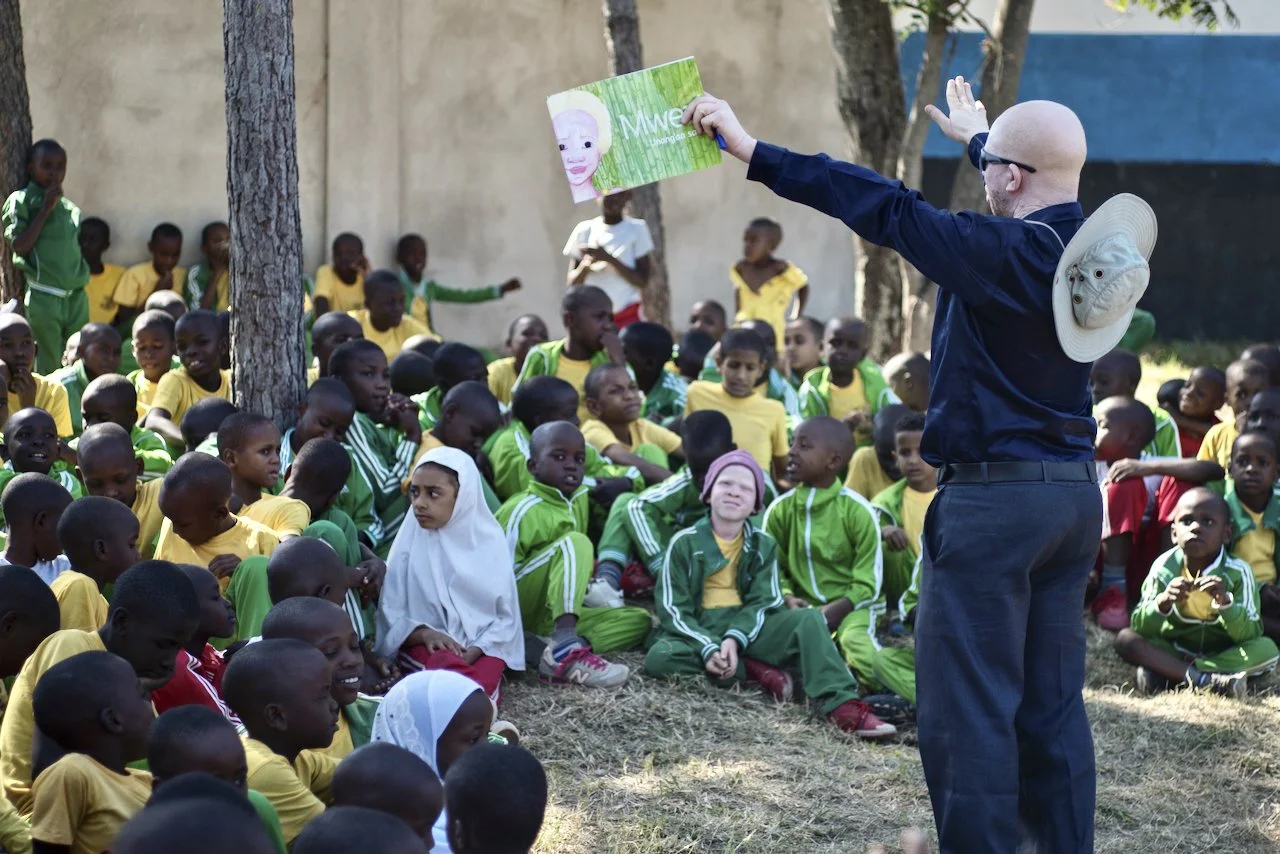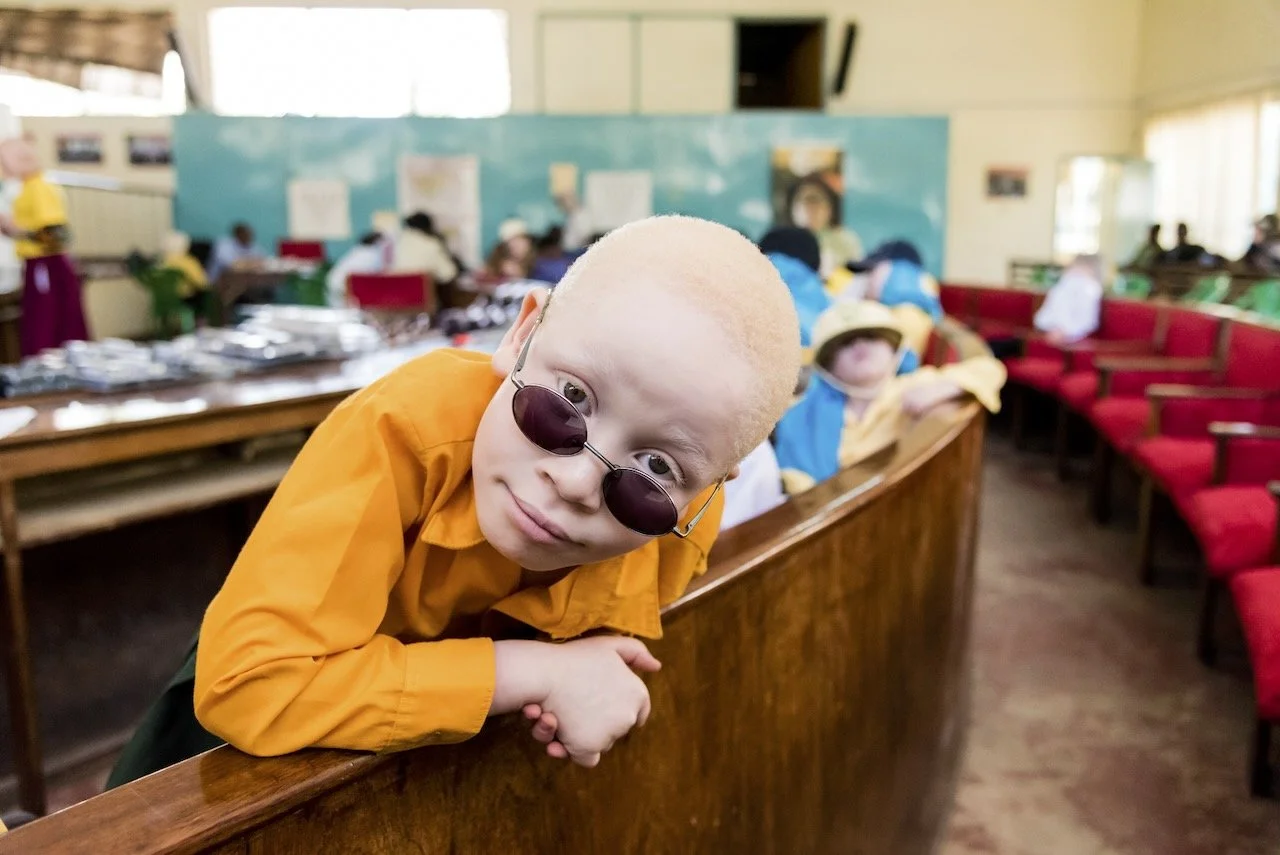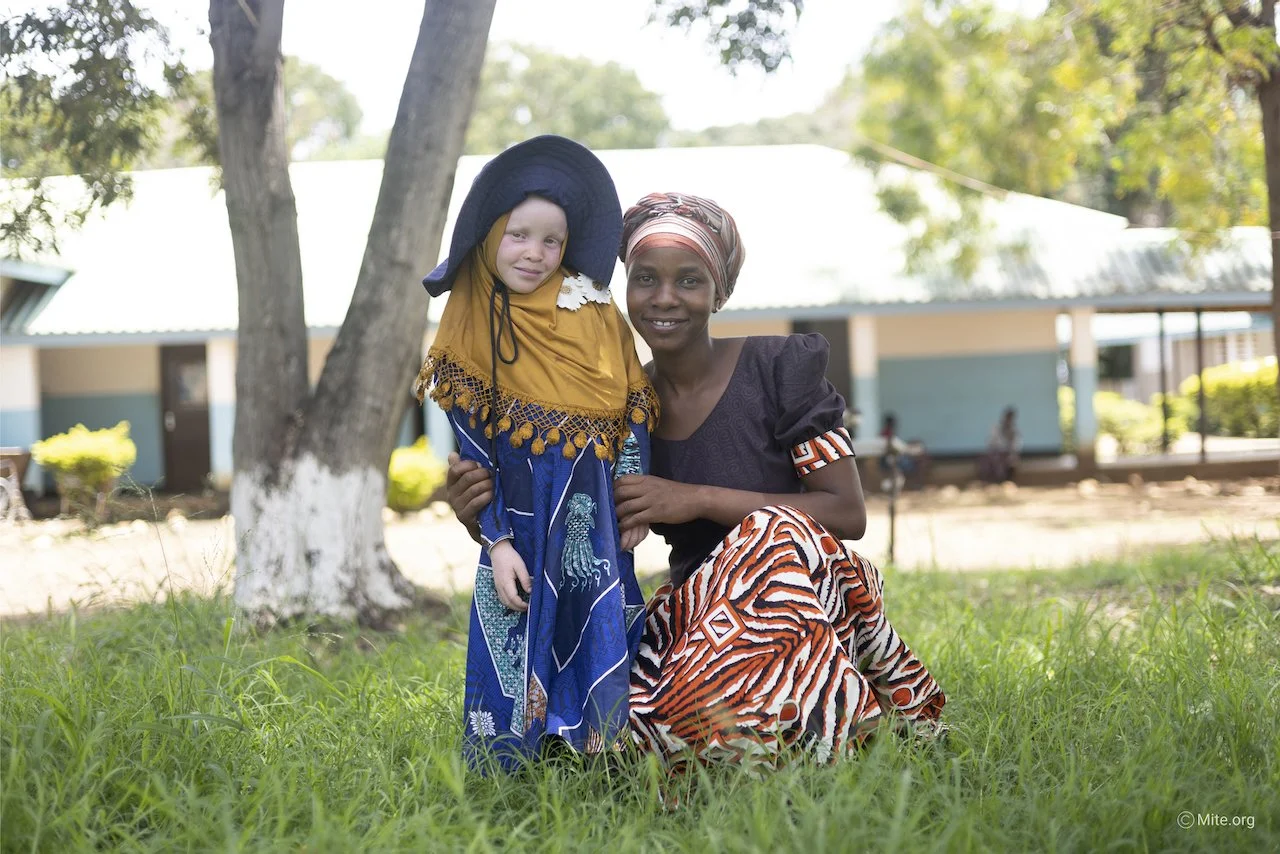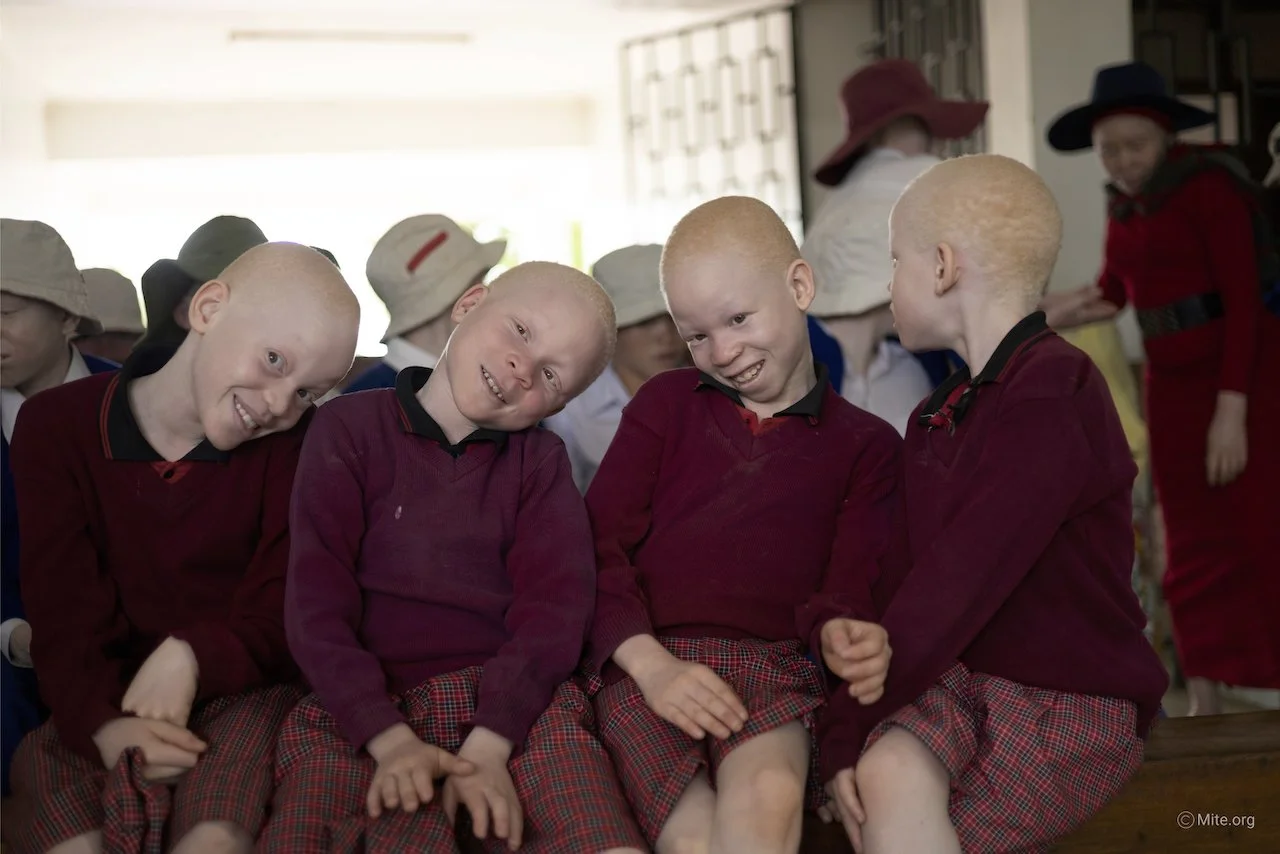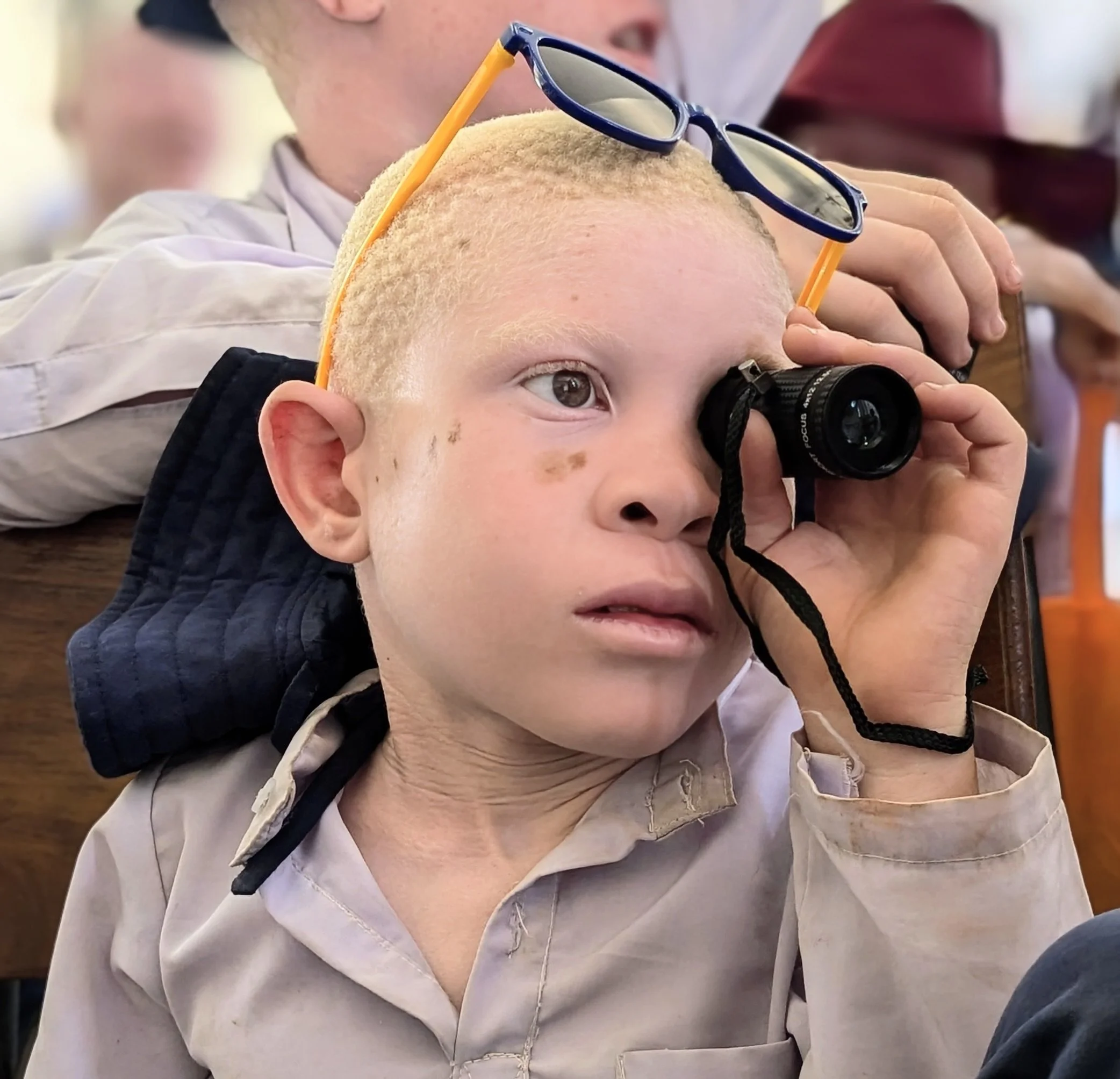EDUCATION

Overview
Breaking Barriers: Inclusive Education for Students with Albinism
In Tanzania and Malawi, students with albinism often face misunderstanding and marginalisation in the classroom. Teachers, unaware of their unique needs, may overlook simple adjustments, such as improved lighting, strategic seating arrangements, or access to assistive vision devices and large-print materials, that can significantly enhance learning experience. Without this support, students can struggle academically and grow up to be unskilled, unemployed, and trapped in a structural cycle of poverty that reinforces stigma.
Since 2013, Standing Voice has worked to improve access to quality education for children with albinism in Tanzania and Malawi. We train teachers, conduct advocacy workshops and school assemblies, and sponsor and support the most at-risk students with a holistic package of care.
Our approach ensures that children with albinism receive the education they deserve by dismantling barriers and providing the tools they need to thrive. Alongside teacher training and awareness-raising, we provide access to essential health services, assistive devices, and direct sponsorship, empowering the next generation to reach their full potential.
How It Works
We adopt a holistic approach to improving access to equitable and inclusive education for children with albinism:
-
For the most vulnerable students, those abandoned by their families, segregated in protectorate centres or denied education entirely, we provide direct sponsorship at high-achieving mainstream schools. This includes tuition fees, books and materials, assistive vision devices, career guidance, and access to essential health and welfare programs.
-
In partnership with the United Nations Voluntary Fund For Victims of Torture, the, European Union and Pierre Fabre Foundation we are helping young survivors of violent attacks re-enter education, ensuring they receive the support they need to heal and continue their studies. Our team also works closely with parents and schools to rebuild trust and facilitate family reconciliation in cases of estrangement.
-
To create systemic change, we partner with schools across Tanzania to equip teachers with the knowledge and skills to support students with albinism effectively. We have trained hundreds teachers as Vision Ambassadors and education champions who advocate for inclusive learning, monitor the well-being of students with albinism, and serve as a frontline defence against bullying.
-
Through school assemblies and tailored educational materials, we work to dispel harmful myths and misconceptions about albinism. These interactive sessions foster understanding among students, parents, and teachers, creating a more inclusive school environment.
-
We have collaborated with organisations such as the Wellcome Trust, Happy Made By, Inside the Same, and Clowns Without Borders to counter negative media narratives with authentic and empowering stories. Additionally, we have partnered with leading UK universities to develop a teacher training guide that clarifies the genetic origins of albinism and strengthens educators’ ability to support visually impaired students.
The Future of Inclusive Education: By tackling the root causes of exclusion and equipping schools and families with the resources to support students with albinism, we are reshaping education and opening doors to a brighter future. Every child deserves the opportunity to learn, thrive, and achieve their full potential.
“Now I don’t have to rely on others for help in class. With my glasses, I feel independent.”
Catherine Peters
“I used to avoid reading and writing because I couldn’t see well. These glasses have opened up my world”.
Helena Paulo
“With my monocular, I can follow lessons like everyone else. It’s changed how I learn”.
Benjamin Raphael
Albinism Booklet for Teachers
Our purpose-built guide for teachers on how to support students with albinism

With thanks to our funders
